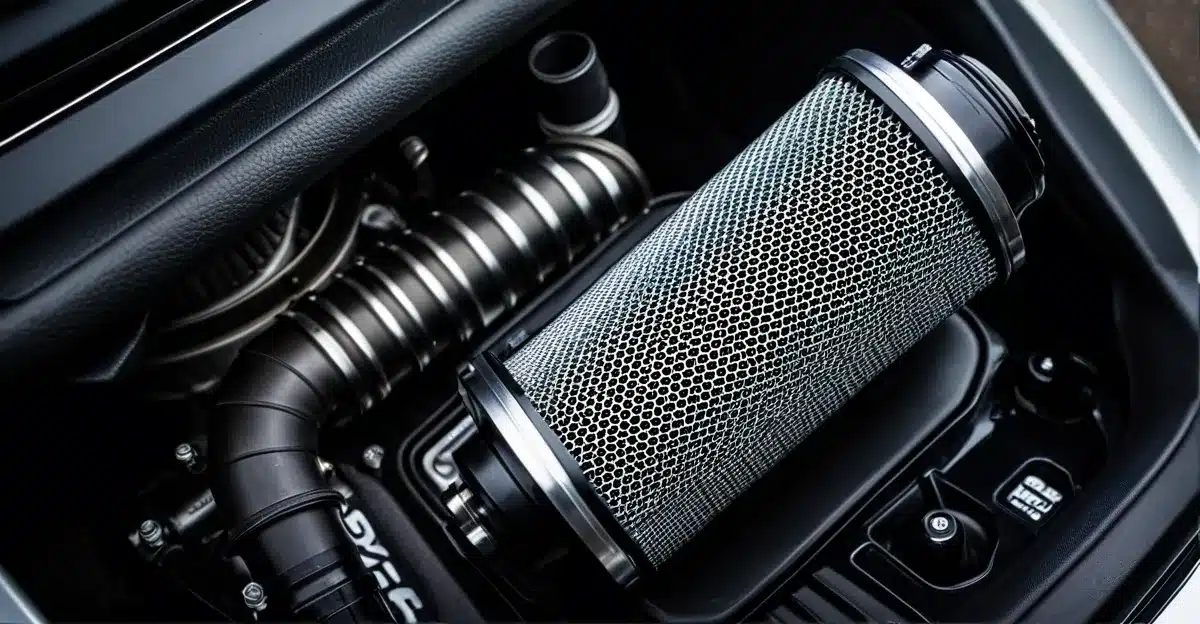Essential Role of the Diesel Particulate Filter in UK Cars
The diesel particulate filter (DPF) plays a crucial role in reducing harmful car emissions by trapping soot and other fine particles produced during diesel combustion. This filtration process significantly lowers the amount of black smoke and particulate matter released into the atmosphere, contributing to cleaner air in urban areas and beyond.
In the UK, stringent environmental regulations require vehicles to meet specific emissions standards. The DPF function is central to achieving these goals. By capturing and periodically burning off the accumulated soot through regeneration, the filter ensures continuous compliance with these standards, helping drivers avoid penalties and maintain their vehicles’ roadworthiness.
Also to read : Reliable 24/7 roadside assistance across the uk
Regarding vehicle performance, the presence of a well-maintained DPF can actually improve the engine’s efficiency and reduce wear over time. However, clogging or malfunction may lead to increased fuel consumption and reduced power, underscoring the importance of proper maintenance. Overall, the diesel particulate filter balances environmental responsibility with vehicle reliability, making it an indispensable component in modern UK diesel cars.
Identifying Warning Signs of DPF Problems
Detecting DPF warning signs early is crucial to avoid costly repairs and maintain vehicle efficiency. One of the most noticeable indicators is decreased engine performance, which often manifests as sluggish acceleration or difficulty maintaining speed. Alongside this, frequent warning lights—especially the DPF warning light—illuminate on the dashboard, signaling that the filter is clogged or malfunctioning.
Additional reading : Mobile tyre fitting alton: convenience at your doorstep
Common DPF blockage symptoms include increased fuel consumption, as the engine works harder to push exhaust gases through the clogged filter. Rough idling is another red flag; the engine may feel unstable or vibrate excessively when stopped. These signs indicate that the soot and ash accumulation inside the DPF is restricting exhaust flow, impairing engine operation.
Ignoring these warning signs can lead to more severe performance issues, such as engine overheating or complete filter failure. Proactively addressing early DPF trouble ensures the vehicle runs smoothly, reduces emissions, and preserves fuel efficiency. Recognizing these symptoms allows timely intervention, such as professional cleaning or replacement, preventing costly damage down the road.
Step-by-Step Maintenance Tips to Maximize DPF Longevity
Taking care of your Diesel Particulate Filter (DPF) requires more than occasional attention—it demands consistent DPF maintenance. Start with adopting safe driving habits, such as regular long drives at higher engine loads. This promotes effective DPF regeneration by allowing exhaust temperatures to rise sufficiently and burn off soot deposits naturally. Avoid frequent short trips that prevent complete regeneration and increase soot buildup.
Next, schedule periodic checks. Regularly inspect the DPF visually or with diagnostic tools to monitor soot levels. For those interested in DIY DPF cleaning, gentle manual cleaning methods like carefully removing accessible soot deposits using compressed air can extend filter life. However, avoid aggressive cleaning techniques that may damage the filter substrate.
Follow key dos and don’ts: do use fuels and additives compatible with your vehicle’s system; don’t ignore warning lights or postpone maintenance, as this leads to blockages. Keep the exhaust system free from leaks, and service related components, like the EGR valve, diligently. Consistent DPF care tips focusing on these points help prevent costly repairs and enhance your vehicle’s performance.
UK-Specific DPF Regulations and Compliance for Car Owners
Understanding key legal guidelines
In the UK, DPF laws are stringent to ensure emissions standards are met. Legally, every diesel vehicle fitted with a Diesel Particulate Filter (DPF) must retain a functioning filter; removal or tampering with the DPF is prohibited under UK law. This is crucial because the DPF plays a direct role in reducing particulate emissions that contribute to air pollution.
The MOT requirements explicitly include emissions testing, where a faulty or missing DPF can lead to a failed MOT test. During the test, inspectors verify that the DPF effectively reduces smoke and particulates from the exhaust. Failure to have a compliant DPF not only risks MOT failure but also legal consequences such as fines and potential vehicle penalties.
Non-compliance can result in hefty fines and, in some cases, prohibition notices that prevent the car from being driven legally on public roads. Ensuring the DPF remains in good condition and functions optimally protects you from penalties and supports cleaner air. For UK drivers, staying informed about these emissions testing rules is essential to avoid unnecessary costs and legal issues.
Optimizing Fuel and Additive Choices for DPF Health
Understanding the impact of fuel and additives on your diesel particulate filter
Selecting the best fuel for UK cars equipped with Diesel Particulate Filters (DPFs) is crucial to maintaining their efficiency. A DPF-friendly fuel, typically characterized by low-ash content, helps minimize soot and ash accumulation, thereby preventing premature filter blockage. Using high-quality, low-sulfur diesel reduces the amount of harmful residues left behind, extending the lifespan of the DPF.
Additives for DPF care play a vital role in supporting filter regeneration and reducing the buildup of particulates. These additives often contain substances that lower the combustion temperature of soot, making it easier for the DPF to burn off accumulated residue during normal engine operation. When selecting additives, choose those specifically formulated for DPF systems to avoid damaging components or clogging.
In the UK market, many fuels are now blended with cetane improvers and detergents designed to support cleaner combustion and DPF functionality. Combining the right DPF-friendly fuel with targeted additives offers a practical approach to optimizing filter health, reducing costly maintenance while ensuring compliance with emission standards.
Professional Servicing Options for DPF Maintenance
Ensuring expert care for your vehicle’s DPF system
Knowing when to consult a DPF specialist is key to maintaining your car’s performance. Symptoms such as warning lights, reduced fuel efficiency, or loss of power often indicate the need for professional intervention. In the UK, many drivers rely on DPF professional cleaning services to restore optimal function without costly replacements.
The process of professional DPF cleaning involves removing the filter and using advanced techniques like thermal or ultrasonic cleaning to eliminate soot and ash buildup thoroughly. This not only extends the filter’s lifespan but also reduces emissions and helps your vehicle meet regulatory standards.
Choosing reputable DPF servicing UK providers requires careful consideration. Look for specialists who offer clear car service recommendations, are certified, and use equipment suited to your vehicle model. Reviews and industry credentials provide reliable guidance. A professional service saves time and prevents potential damage that might occur with DIY attempts or generic service centres. Prioritize experts to ensure your DPF system receives precise and effective care, keeping your car running smoothly and eco-friendly.
Expert Advice: Common Mistakes to Avoid in DPF Maintenance
Maintaining a Diesel Particulate Filter (DPF) correctly is crucial to vehicle performance and environmental compliance. Many fall into DPF mistakes by attempting shortcuts, like removing the filter entirely or using improper cleaning methods. This often leads to costly damage and legal issues.
A frequent DPF troubleshooting error is neglecting proper regeneration cycles. DIY enthusiasts may try forced regeneration without understanding engine conditions, resulting in incomplete soot burn-off and eventual clogging. Using low-quality fuel or oil can worsen this by increasing particulate deposits.
Another common oversight is ignoring diagnostic tools. Relying on guesswork instead of error codes fails to address root problems effectively. Consulting a DPF expert advice source or a professional mechanic ensures a proper diagnosis and tailored maintenance strategy.
To extend your DPF’s lifespan, avoid sudden maneuvers like short trips that prevent natural regeneration, and always use manufacturer-recommended parts and fluids. Seeking guidance from trusted industry professionals or manufacturer manuals avoids many pitfalls. Proper care not only saves money but also maintains your vehicle’s efficiency and environmental standards.





